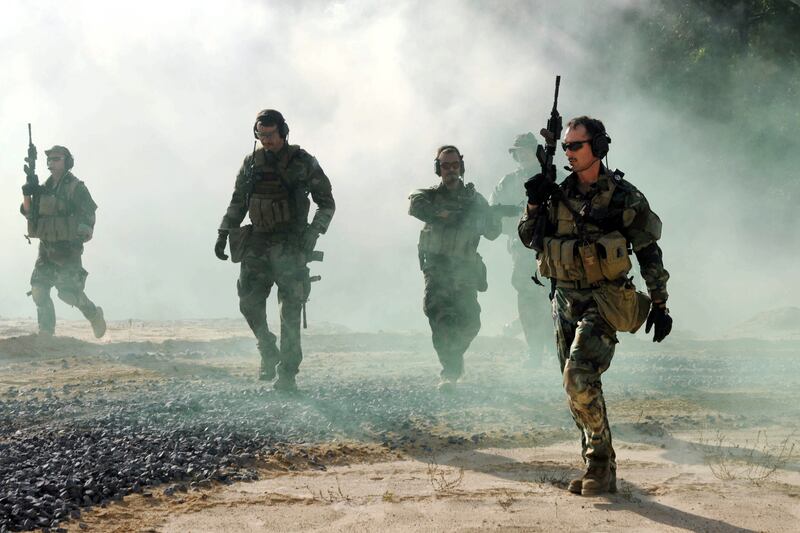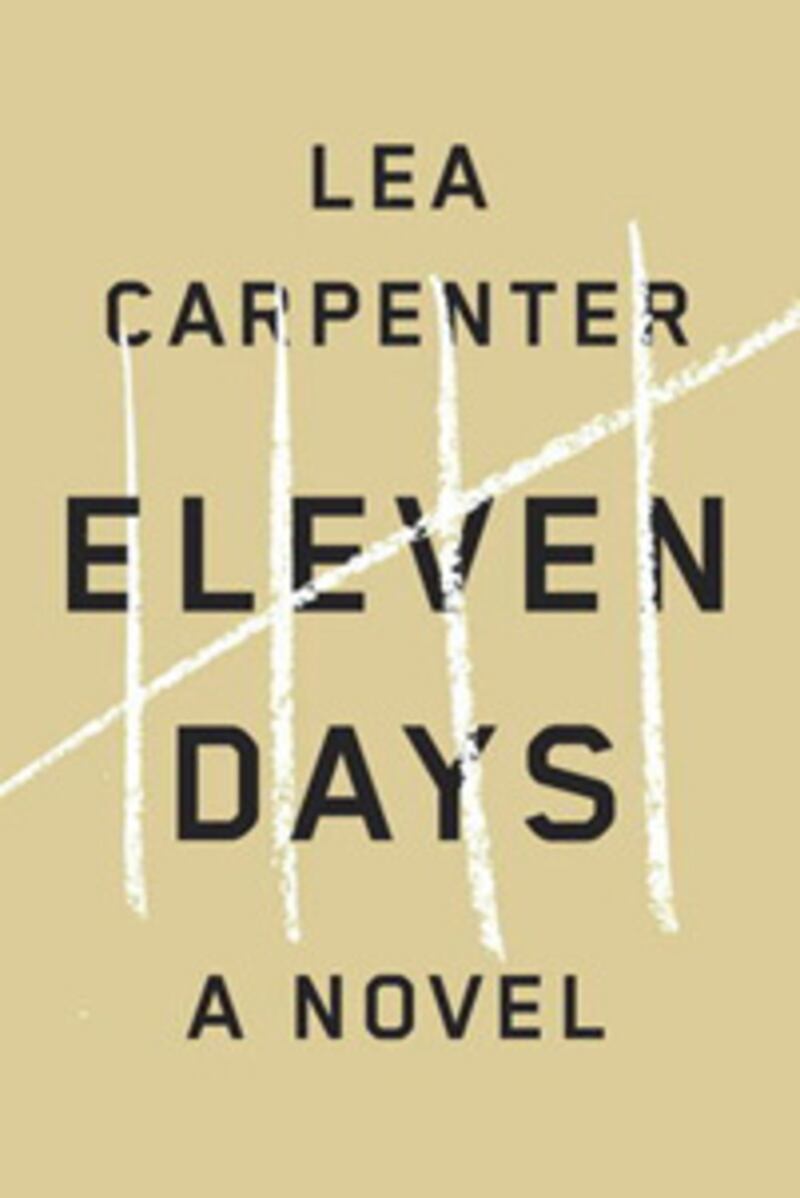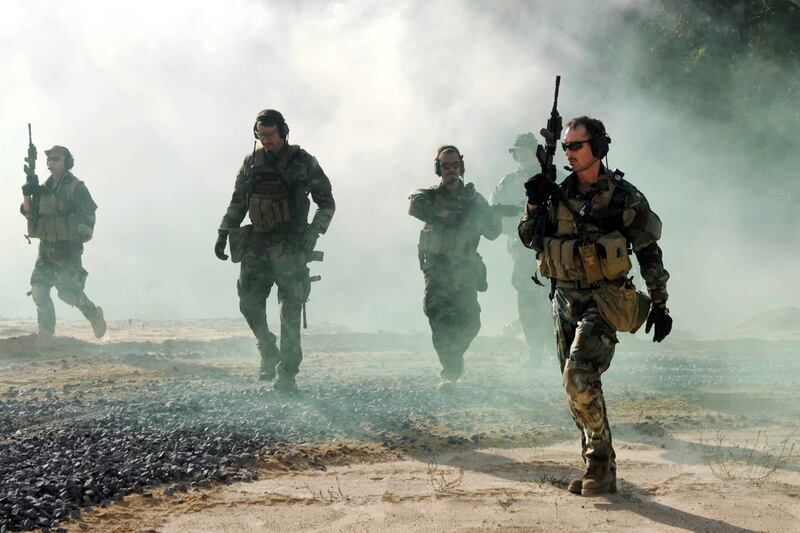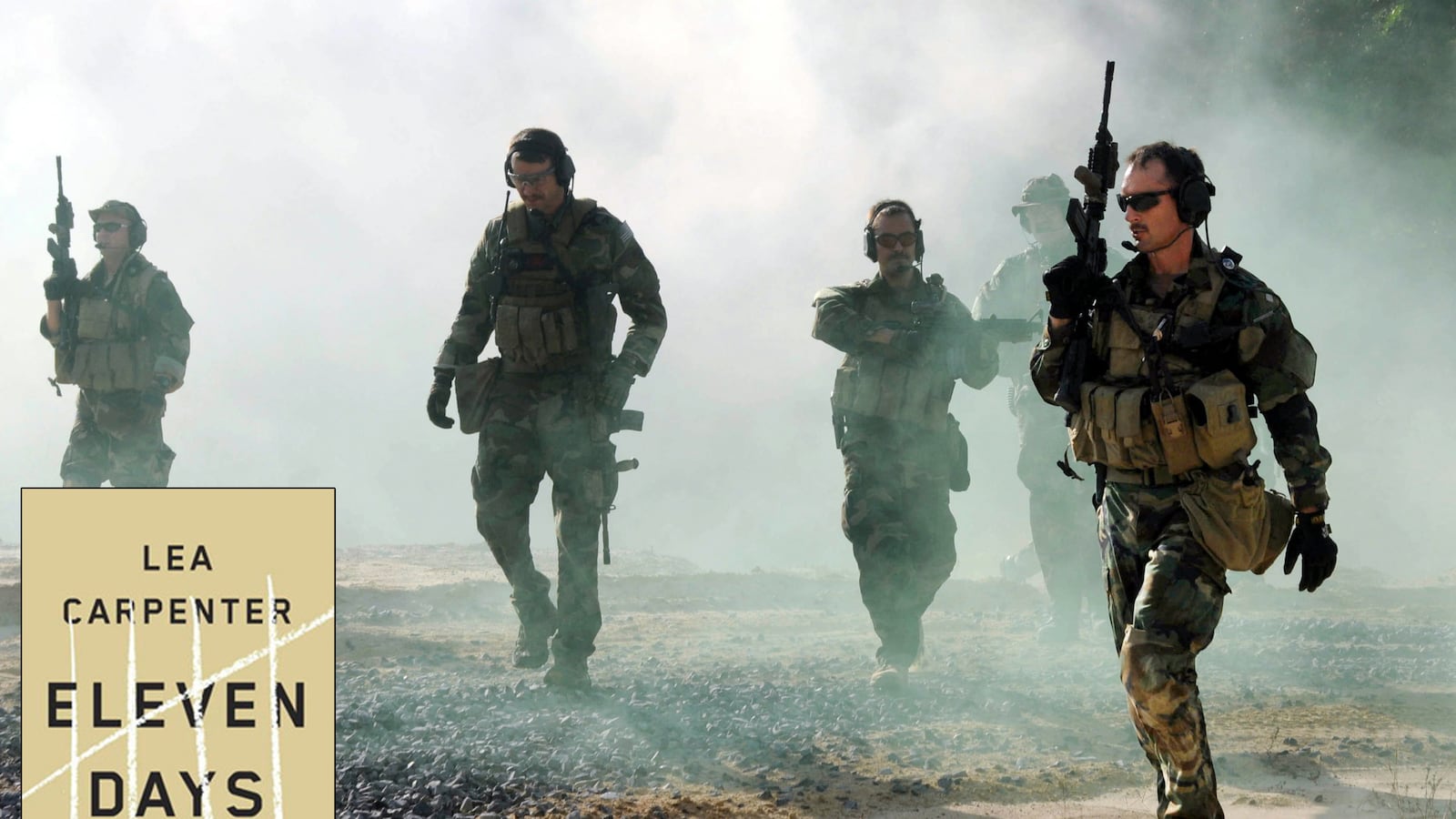There’s a strange, persistent undercurrent of thought in military writing that’s unlike any other in literature. It suggests authors shouldn’t write about war unless they’ve participated in it as a combatant or otherwise survived its ravages. This prejudice can be as creatively destructive as it is mistaken—some of the finest works on the subject, from Shakespeare’s Henry V to Stephen Crane’s The Red Badge of Courage to Rebecca West’s The Return of the Soldier were penned by individuals not directly involved in fighting, but who still wrote about it with poignancy. Like writing of any type, good military literature benefits from research, care, and skill. It suffers when those things lack. Turns out, there are many ways to prove true Hemingway’s adage “Write what you know.”

The latest evidence of such is Lea Carpenter’s incisive, graceful novel Eleven Days, which is certain to vault to the top of any list of high quality literature about the wars in Iraq and Afghanistan. A military daughter who once worked for The Paris Review, Carpenter meticulously weaves together the story of a single mother and her son, and their deep love and respect for one another, with that of the molding of the son into a young, idealistic Navy SEAL. Though some readers will no doubt be attracted to the SEAL angle in all its tattooed, loud glory, it is the SEAL’s mother, Sara, who serves as the novel’s heroine and most dynamic force.
There’s a determined stoicism to Sara, coupled with a tender, inner anguish, which will ring true to anyone who ever sent a loved one off to war. She’s proud of her son Jason but terrified for him; disdainful of any man her age who didn’t serve but wary of those who did; and fascinated but skeptical of the SEAL ideology being absorbed by her son. Her relationship with the military and the wars aren’t black and white, but a messy, ambiguous swirl of gray, something that doesn’t exist in Internet commentary. This swirl of gray is at its most churning in the novel’s opening pages, as Sara awaits word regarding the fate of her son, who’s gone missing in action during a mission overseas. From there, Carpenter alternates between the past and the present, showing us Jason’s idyllic childhood in rural Pennsylvania, Sara’s own private battles as her son goes on deployment after deployment, and then overseas with Sara herself trying to find her missing son.
This is an earnest book, a rare thing for a post-Catch-22 war novel of the literary ilk. The characters in Eleven Days are privileged in pedigree and possess access to power, but still find purpose in wearing the uniform, a refreshing break from the “Poor boy goes to battle, finds only destruction” narrative that’s been mimicked repeatedly since Tim O’Brien’s masterful works on the Vietnam War. While 99.9% of military mothers wouldn’t be allowed the access and information Sara is, that’s beside the point. Good fiction like this bears emotional authority that transcends the question of whether something “could” occur. Even as we journey with Sara from Pennsylvania to Washington, D.C. and beyond, the specter of the family members who have served their country on the home front in such isolated silence since 9/11 goes with us. Sara lives out a dark, twisted fantasy so many of them must’ve begged the heavens for on sleepless nights or long days without an email or phone call. Like many before her, Sara is called to fulfill a duty she never signed up for, but does so with resolve, because she understands that’s what must be done.

Carpenter’s writing is resonant in a way that doesn’t call attention to itself, but builds upon itself, sentence by sentence, chapter by chapter, to serve the whole of the book. Lines like “Most people, in the abstract, prefer butter to guns, but most mostly prefer not to think about it all,” and “He hung up the phone and smiled. She hung up the phone and wept,” reveal an author that is as precise and controlled with her language as she is with her thematic pronouncements. Like West before her, Carpenter utilizes the home front to great effect as a method of conveying to a wider society just what it was a group of young people did in their country’s name. Unlike West, who wrote about a generation of returning British soldiers (“lions led by donkeys”), Carpenter deals with a caste of warriors separate and distinct from America, postmodern legionnaires sometimes led by sensitive, educated officers like Jason, and sometimes not.
The SEALs in Eleven Days resemble the ones that live on in the organization’s own collective mythology, quiet, dutiful professionals, rather than the ones that have found the public eye in recent years. From Jesse Ventura to Erik Prince of Blackwater infamy to “Mark Owen,” among others, the SEALs—at least the ones willing to write about and speak of their experiences—sometimes seem more like the grandstanding cowboys that members of other branches often claim they are. The media frenzy that followed the SEALs after the bin Laden raid is not unlike what Hunter S. Thompson describes in Hell’s Angels about outlaw motorcyclists: some bask in the attention, others fret that it will compromise the organization’s purpose and creed. The SEALs in Carpenter’s novel though are as loyal as they are bright, as honor-bound as they are proficient. Considering the role special operators are continuing to play in American security policy in the near future, here’s hoping Carpenter’s SEALs are more composite sketches than fictional myths.

Perhaps one of the most impressive—and unconventional—qualities of Eleven Days is the lack of a traditional antagonist. That’s assuredly intentional. This isn’t an “us” versus “them” narrative. It’s about the nature of mythology, how it’s shaped, why it’s crafted, and what it does to us as a culture and society, all questions Jason wrestles with himself as he mulls over whether to stay in the Navy or leave it for business school. As Sara tells Jason as a young child, “A myth is a fiction that matters.” Something that’s not a fiction in Eleven Days but still worthy of mythologizing is the silent strength of military families—spouses, parents, children who have hung banners with blue stars in their windows for over a decade, despite much of their own communities not recognizing what it symbolized. As Jason writes his mother in a letter before he goes missing, “You gave me the courage to do what I have done.” With searing, sometimes uncomfortable truths like that found throughout Eleven Days, Lea Carpenter has written a novel that matters.






